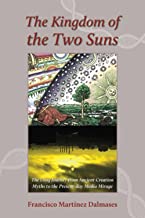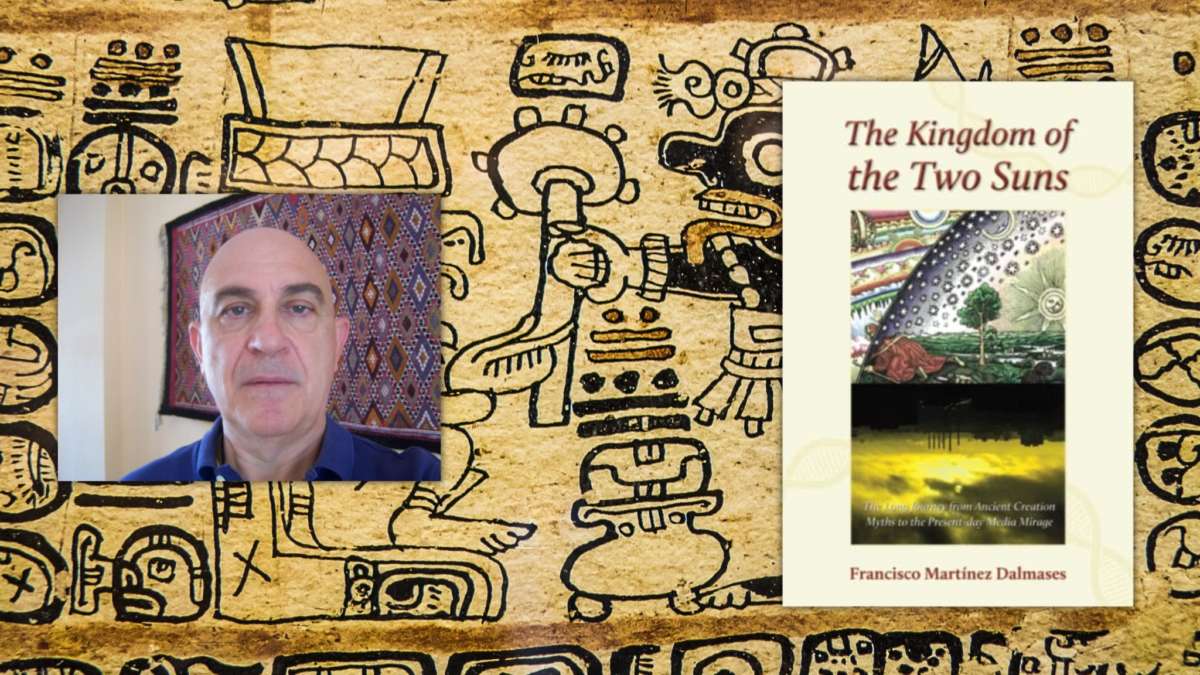The Kingdom of the Two Suns by Francisco Dalmases Martinez
“There are enough people looking at the world in the way media and corporate interests tell them to do… Why not try a different approach?” These are the words of Francisco Dalmases Martinez, author of new book The Kingdom of the Two Suns. In this book, Martinez aims to help us step outside our typical selves and perhaps attain a new mindset in a world increasingly dominated by fear and pressure.
This book takes you on a journey to glimpse the processes that surround us in a new light. The chapters do not follow a single theme throughout the book, nor have they been arranged chronologically. Readers will travel to examine ancient myths, delving into their language to try to understand their origin and potential. The unfolding of human consciousness in different times and places is the common thread.
“We find ourselves here, with the potential to live a human experience,” said Martinez. Why not make the most of it?
Check out the interview below for some insight from Martinez about the writing of the book and the basis for it:
Q: The Kingdom of the Two Suns is, in your own words, a book that will “remove us from the cage in which the capacity of human perception is being gradually locked in.” Tell us what you mean by this.
A: We are immersed in collective narratives where fear, group pressure and conformity to the prevailing economic system do not allow most people to explore other realities outside the present social framework.
We can develop other social constructs, and we are able to unfold latent potentialities within our mind-body experience. Some people fear to step out of their present situation, as unfulfilling as it may be, to lose footing in the “material world;” they fear a scenario beyond their experience. A childish frame of mind has grown around us, particularly in the materially affluent West. The book reveals other realities within our reach and a different background, giving some cues as to how we have come to be in this situation.
Q: Tell us about the writing process for this book. Was there extensive research involved? Did any of it come from your own experiences?
A: I started writing the book ten years ago. It was based on a long exposure to a perception of what some western mystics would call “living in a dream world”, similar to the cave metaphor of Plato. But, it is not enough to state that. For a book to have meaning you have to unravel different threads and provide examples of how distortion has taken over. And at the same time avoid the academic approach and “kill the spirit” of what you are trying to show.
Initially I was writing in Spanish, at some point I realized that since most of the economic and social “drive” of present Western society has its origin in the United States, to fully address these issues I had to write in English and do further research into the political and social developments of the last hundred years in the US, particularly the emergence of the media industry as a major force. People have been diverted -using sophisticated psychological engineering- from an open society to a “consumer’s society”, where consumption is not solely about goods and gadgets, but about imbibing an artificial construction of how the world is and what its values are.
The book has benefited from that change in research. And after an initial metaphysical approach I made room for a dig-down-into-present dynamics approach. The book contains both ingredients in overlapping layers, that makes it different.
Q: As you say, we live in a world where “fiction and reality are increasingly difficult to separate. What is one tip you could give that readers can use to distance themselves from the “fiction?”
A: Excessive information causes friction; it short-circuits our rational modes of thought. We must learn to avoid being saturated with striking images and hyped information by the media and see things in context. In the past having a wholistic mode of thinking and developing intuition, the feel about situations and people, was a recipe for “enlightenment.” Now they are basic ingredients we need in our survival kit!
Q: What do you mean by the term “latent humanity?”
A: We find ourselves here, with the potential to live a human experience, and that has nothing to do with having a well-paid job, a nice house and foreign vacations. We have cut ourselves off from the mythology of our ancestors and have not developed a collective archetypal meaning for our role here and now. It is like having a collective metal lid over our heads and not being able to conceive of the depth above and beyond our one-dimensional world. This limitation does not invalidate the dimension of “depth,” our latent humanity, but it makes it difficult for large groups of people to access it.
Q: Do you read the works of other authors? Who do you draw inspiration from?
A: I grew up in a culture where listening to stories had a role in the maturing process. Early on I discovered Homero, Greek mythology and classical stories that have an initiatory role. As an adult I read authors like Doris Lessing, particularly her Canopus in Argus saga, which has been called “metaphysical science-fiction,” where detaching yourself from the scenario’s time and place, allows you to identify things difficult to see at ground level. The most important author I’ve ever encountered is Idries Shah, whose work of grafting patterns of the Sufi tradition into Western culture provides a crucial key. It allows you to perceive structure where most people only see external shape.
Q: What do you hope readers take away from this book?
Perhaps an interest to look at things in a different way. There are enough people looking at the world in the way media and corporate interests tell them to do. Don’t worry, if that sustains the world, there would always be enough people to sustain it.
Why not try a different approach? In a material world where people who can afford it pay fortunes for rare artifacts, why not aim to become a “rare” human being, endowed with valuable capacities and ready to share them with people who can appreciate them?
Purchase The Kingdom of the Two Suns here.
About Francisco Dalmases Martinez:
Francisco Martinez Dalmases is the author of The Kingdom of the Two Suns, which has been published in Spanish and English.
Buy this Book!
Amazon



